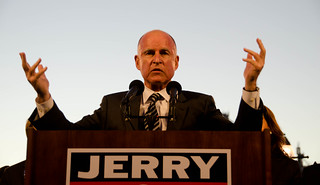Walmart Faces Black Friday Ultimatum

Striking workers at Walmart have upped the ante, threatening to disrupt Black Friday sales with leafleting and flash mobs, Josh Eidelson reports
One day after Walmart employees in twelve states launched a major strike, today workers issued an ultimatum to the retail giant: Stop retaliating against workers trying to organize, or the year’s most important shopping day, the Friday after Thanksgiving, will see the biggest disruptions yet. The announcement comes as 200 workers – some of them currently striking – have converged in the Walmart’s Bentonville, Arkansas hometown outside the company’s annual investors meeting. It offers a new potential challenge to Walmart, and a new test for OUR Walmart, the labor-backed organization that’s pulled off the first two multi-store U.S. strikes in Walmart history. [Salon]
The Black Friday ultimatum is an innovative tactic by a weaker adversary against a much stronger opponent. The strikers, who are not represented by a union, are threatening not only to disrupt one of the most lucrative days of Walmart’s year, but to draw negative publicity during an event that has become a tradition integral to Walmart’s brand.
[Photo credit: Inside a Walmart, by Tobin Black.]






